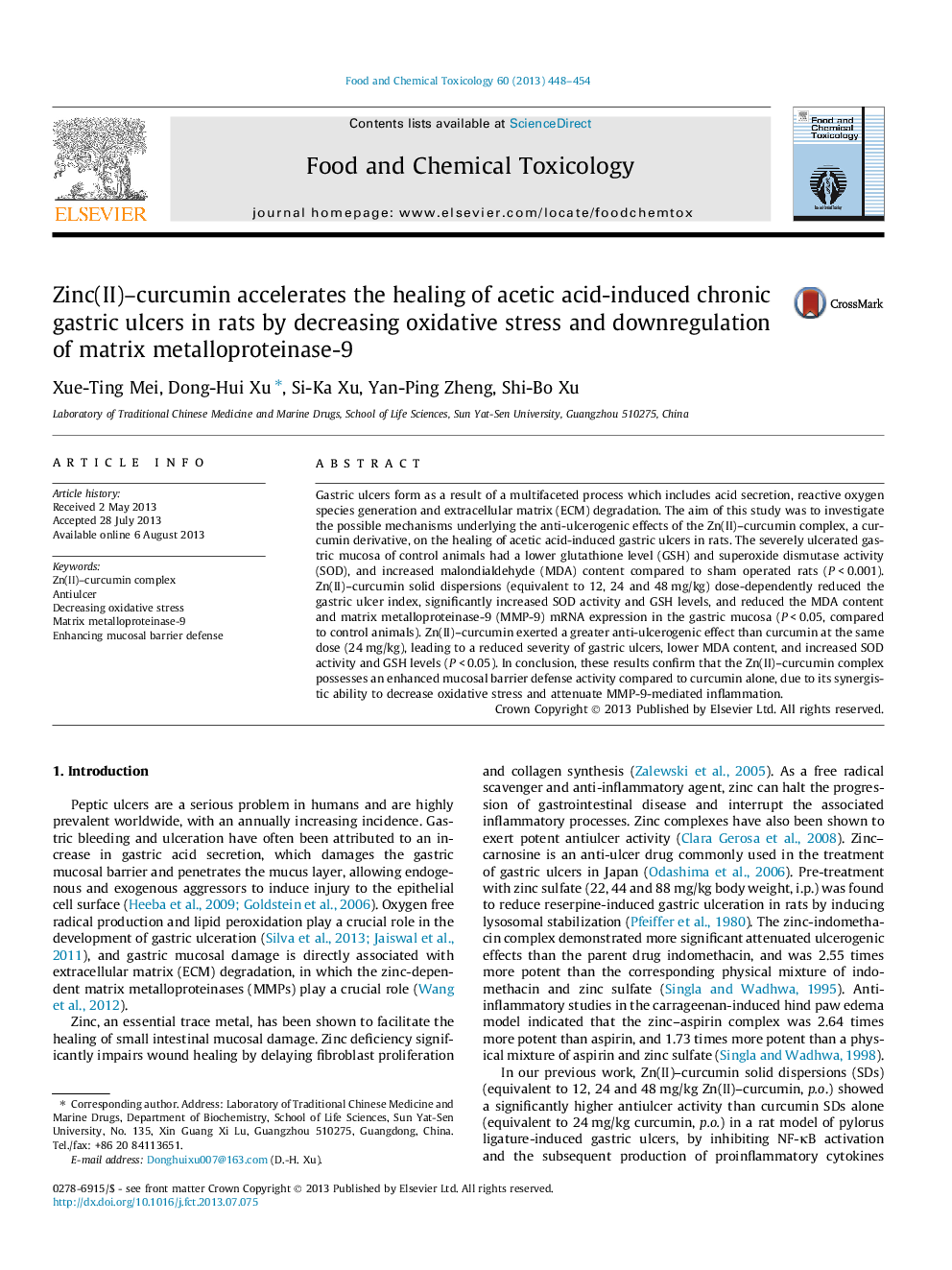| کد مقاله | کد نشریه | سال انتشار | مقاله انگلیسی | نسخه تمام متن |
|---|---|---|---|---|
| 2585131 | 1561784 | 2013 | 7 صفحه PDF | دانلود رایگان |

• Chronic gastric ulcer promotes oxidative stress.
• Zinc deficiency significantly impairs wound healing by delaying fibroblast proliferation and collagen synthesis.
• Zn(II)–curcumin exerts a potent gastroprotective activity against acetic acid-induced gastric ulcers.
• Zn(II)–curcumin revealed more patent antioxidant activity than curcumin.
• Zn(II)–curcumin enhanced mucosal barrier defenses by inhibition of MMP-9 expression.
Gastric ulcers form as a result of a multifaceted process which includes acid secretion, reactive oxygen species generation and extracellular matrix (ECM) degradation. The aim of this study was to investigate the possible mechanisms underlying the anti-ulcerogenic effects of the Zn(II)–curcumin complex, a curcumin derivative, on the healing of acetic acid-induced gastric ulcers in rats. The severely ulcerated gastric mucosa of control animals had a lower glutathione level (GSH) and superoxide dismutase activity (SOD), and increased malondialdehyde (MDA) content compared to sham operated rats (P < 0.001). Zn(II)–curcumin solid dispersions (equivalent to 12, 24 and 48 mg/kg) dose-dependently reduced the gastric ulcer index, significantly increased SOD activity and GSH levels, and reduced the MDA content and matrix metalloproteinase-9 (MMP-9) mRNA expression in the gastric mucosa (P < 0.05, compared to control animals). Zn(II)–curcumin exerted a greater anti-ulcerogenic effect than curcumin at the same dose (24 mg/kg), leading to a reduced severity of gastric ulcers, lower MDA content, and increased SOD activity and GSH levels (P < 0.05). In conclusion, these results confirm that the Zn(II)–curcumin complex possesses an enhanced mucosal barrier defense activity compared to curcumin alone, due to its synergistic ability to decrease oxidative stress and attenuate MMP-9-mediated inflammation.
Figure optionsDownload as PowerPoint slide
Journal: Food and Chemical Toxicology - Volume 60, October 2013, Pages 448–454